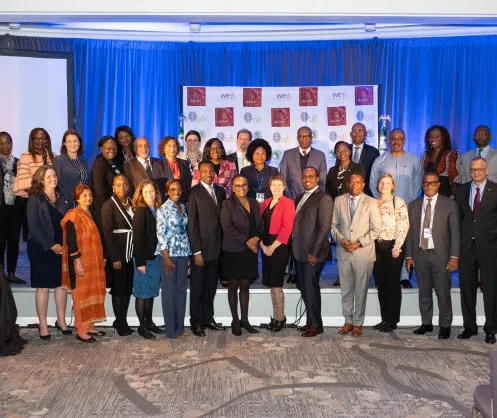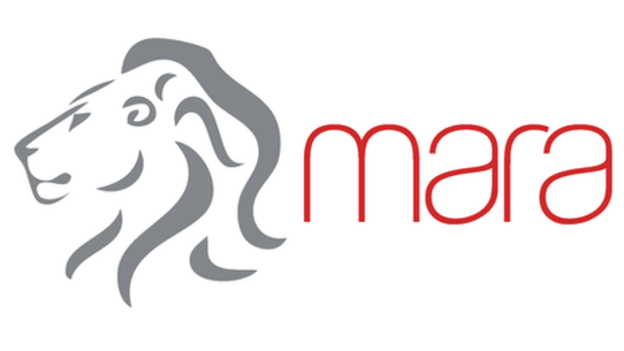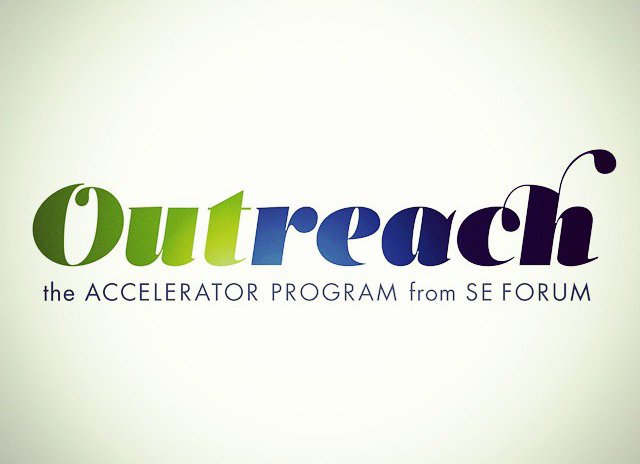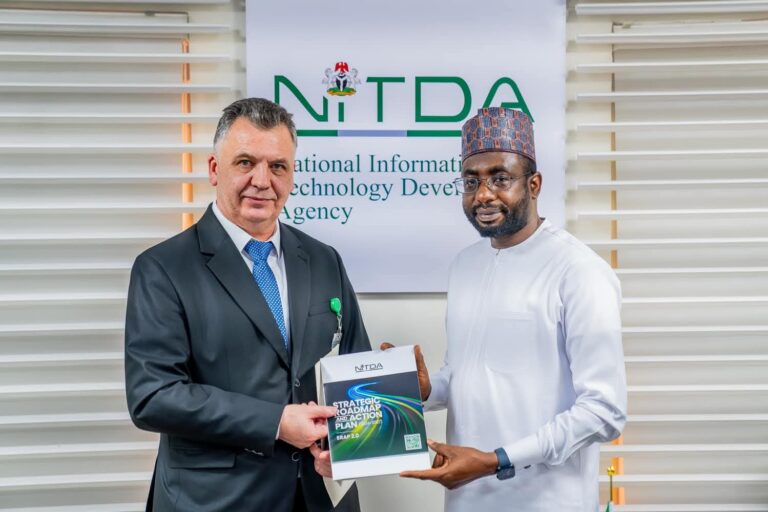Affirmative Finance Action for Women in Africa Campaigns for Financial Inclusion for Female-led Businesses

African Finance Ministers and Central Bank Governors were introduced to a new partnership that aims to increase financial inclusion for women-led businesses across the continent through the Affirmative Finance Action for Women in Africa (AFAWA) program of the African Development Bank and the Alliance for Financial Inclusion.
The AFAWA-Alliance for Financial Inclusion partnership was introduced to more than 70 guests, including 50 representatives from Ministries of Finance and Central Banks, 10 of whom are currently serving as ministers or governors, at a roundtable dinner held on the eve of the International Monetary Fund and World Bank Annual Meetings on October 12.
The $4 million program assists regulators, policymakers, and other stakeholders in developing policies that promote financial inclusion and benefit small and medium-sized enterprises owned and operated by African women.
“Through this initiative, we hope to increase technical capacity among policymakers at the institutional, national, and regional levels as well as produce better data for policy decision-making. In her introductory remarks, Bank Senior Vice President Swazi Tshabalala predicted that these initiatives would result in an improved financial policy and regulatory environment for women in business in Africa.
Many African nations have financial inclusion as one of their top priorities, and they are setting specific goals for women’s financial inclusion. According to a McKinsey report, Africa will lose out by $316 billion in GDP by 2025 if women across the continent are unable to access credit. However, the establishment of an enabling environment by African governments may benefit from evidence-based support from partnership institutions.
“We, as African Central Banks, are very pleased to see the deepened cooperation between the African Development Bank and Alliance for Financial Inclusion since signing a memorandum of understanding in 2017 in Abidjan,” said Mozambique’s Central Bank Governor Rogério Zamdemela on behalf of the Alliance for Financial Inclusion’s management unit.
Zamdemela continued, “I compliment the leadership on the program’s debut.
The Bank identified nations with the most forward-thinking financial inclusion policies last year through the AFAWA-Alliance for Financial Inclusion cooperation. The Democratic Republic of the Congo, Morocco, Nigeria, Rwanda, Senegal, Zambia, and Zimbabwe were chosen by the Alliance as case study nations.
The following criteria were used to make its decision: having made significant strides toward the financial inclusion of small and medium-sized businesses led by women; best practices to guide the process of harmonizing financial inclusion; and offering policy guidance to speed up this focused access to finance. For instance, women’s financial inclusion has increased by an astonishing 900% in Senegal over the past ten years, while it increased by 700% in the Democratic Republic of the Congo during the same time period.
Attendees of the occasion heard from representatives of the International Monetary Fund, which recently unveiled its first Gender Strategy, that statistical research and cooperation will help the new partnership accomplish its objectives.
“We acknowledge that decreasing gender inequities promotes exponential economic growth, particularly when it comes to access to finance. The International Monetary Fund’s Senior Advisor on Gender, Ratna Sahay, urged all nations to share gender-disaggregated statistics and seek collaborations with newly developing industries.
Dr. Beth Dunford, the Vice President of the Bank for Agriculture, Human and Social Development, Malado Kaba, the Director of the Bank for Gender, Women and Civil Society, and Esther Dassanou, the Manager of the AFAWA initiative, all expressed support for the new relationship.
Together with the regional organizations Union économique et monétaire de l’Afrique de l’Ouest and la Communauté économique et monétaire de l’Afrique centrale, AFAWA and the Alliance for Financial Inclusion will implement the joint program in 35 countries in Africa that are represented by institutions that are members of the Alliance.







